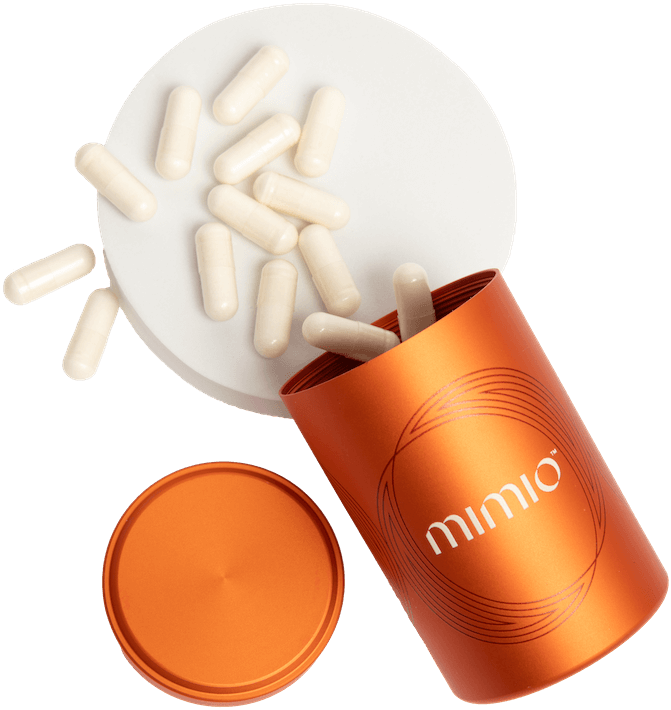How Alcohol Affects Your Metabolism: The Comprehensive Guide
Alcohol has a reputation for being both a social lubricant and a health disruptor. Whether it’s a glass of wine with dinner or cocktails at happy hour, drinking alcohol affects your body in various ways, including your metabolism. But how exactly does alcohol impact the complex processes that keep your body running?
This guide breaks down the relationship between alcohol and metabolism, exploring how it affects weight management, energy production, and overall health. By understanding the science, you can make more informed choices about your drinking habits.
What Is Metabolism?
To understand how alcohol affects metabolism, it’s important to start with an understanding of what metabolism is. Metabolism is the collection of chemical processes that convert food and drink into energy. These processes include:
- Basal Metabolic Rate (BMR):
- The energy your body uses at rest for essential functions like breathing and circulation.
- Thermogenesis:
- The energy required to digest food and process nutrients.
- Physical Activity:
- The energy used during movement and exercise.
Your metabolism is influenced by factors like age, gender, muscle mass, and lifestyle habits—including alcohol consumption.
What Happens When You Consume Alcohol?
When you drink alcohol, your body treats it as a toxin. Here’s how it processes alcohol:
- Absorption:
- Alcohol is rapidly absorbed in the stomach and small intestine.
- Metabolism in the Liver:
- Your liver prioritizes breaking down alcohol because it can’t be stored like other nutrients. Enzymes like alcohol dehydrogenase (ADH) and aldehyde dehydrogenase (ALDH) convert alcohol into acetaldehyde (a toxic compound) and then into acetate, which is used for energy.
- Disruption of Other Processes:
- While alcohol is metabolized, your liver puts other metabolic functions, like fat oxidation, on hold.
The Effects of Alcohol on Metabolism
1. Alcohol and Caloric Intake
- Calories in Alcohol: Alcohol contains 7 calories per gram, nearly as much as fat (9 calories per gram). These are “empty calories” with no nutritional value.
- Increased Appetite: Alcohol can stimulate appetite, leading to overeating.
2. Slowing Fat Metabolism
- When your liver is busy metabolizing alcohol, it delays fat oxidation. This means your body burns less fat for energy, potentially contributing to weight gain.
- Alcohol is converted into acetate, which becomes your body’s primary energy source, leaving fats and carbs stored as fat.
3. Impact on Hormones
- Cortisol: Alcohol increases cortisol, a stress hormone that promotes fat storage, especially around the abdomen.
- Insulin: Drinking can cause blood sugar spikes and drops, disrupting insulin sensitivity and glucose metabolism.
- Testosterone: Chronic alcohol consumption can lower testosterone levels, which are essential for muscle growth and fat metabolism.
4. Disrupted Sleep
- Alcohol interferes with REM sleep, a restorative phase critical for hormonal balance and metabolic function. Poor sleep can slow your metabolism over time.
5. Alcohol and Muscle
- Chronic drinking can impair protein synthesis, making it harder to build and maintain muscle mass.
- Reduced muscle mass lowers your basal metabolic rate, leading to fewer calories burned at rest.
6. Alcohol and Gut Health
- Heavy drinking disrupts the gut microbiome, which plays a crucial role in digestion and nutrient absorption. An imbalanced microbiome can lead to inflammation and metabolic inefficiency.
Alcohol and Weight Management: The Connection
1. Weight Gain
- The calories from alcohol, combined with poor dietary choices when drinking, can lead to a calorie surplus.
- Alcohol also impairs judgment, making it more likely you’ll opt for high-calorie, processed foods.
2. Difficulty Losing Weight
- Alcohol slows fat metabolism and disrupts hormonal signals related to hunger and fullness, making it harder to stick to a calorie deficit.
3. Central Fat Storage
- Chronic alcohol consumption is linked to visceral fat accumulation, which is stored around internal organs and increases the risk of metabolic disorders.
The Long-Term Effects of Alcohol on Metabolism
1. Increased Risk of Metabolic Syndrome
- Metabolic syndrome is a cluster of conditions—including high blood pressure, high blood sugar, excess abdominal fat, and abnormal cholesterol levels—that increase the risk of heart disease and diabetes. Alcohol contributes to many of these risk factors.
2. Liver Damage
- Chronic alcohol consumption can lead to fatty liver disease, hepatitis, or cirrhosis, impairing the liver’s ability to metabolize nutrients and toxins.
3. Type 2 Diabetes
- Disrupted insulin sensitivity from alcohol can increase the risk of developing Type 2 diabetes.
4. Cardiovascular Health
- While moderate alcohol consumption may have heart-protective benefits, excessive drinking raises blood pressure and contributes to cardiovascular disease.
Can Alcohol Fit Into a Healthy Lifestyle?
Moderation is key when it comes to alcohol. The occasional drink is unlikely to derail your metabolism or have disruptive consequences, but chronic or excessive consumption can have long-term negative impacts.
Tips for Mindful Drinking:
- Choose Lower-Calorie Options:
- Opt for light beers, dry wines, or spirits mixed with soda water.
- Eat Before You Drink:
- Having a balanced meal can slow alcohol absorption and stabilize blood sugar.
- Hydrate:
- Alternate alcoholic drinks with water to stay hydrated and reduce total intake - for every one drink of an alcoholic beverage aim to have one glass of water
- Set Limits:
- Stick to moderate drinking guidelines (up to one drink per day for women and two for men).
How to Minimize Alcohol’s Impact on Metabolism
1. Support Liver Health
- Your liver is the primary site for alcohol metabolism, so keeping it healthy is essential.
- Eat liver-friendly foods like leafy greens, berries, and fatty fish.
2. Stay Active
- Exercise boosts metabolism and helps counteract some of alcohol’s effects, like fat storage and muscle loss.
3. Prioritize Sleep
- Focus on quality sleep to allow your body to recover and maintain metabolic balance.
4. Supplement Wisely
- Consider using a supplement like Mimio Biomimetic Cell Care to support cellular health, enhance fat metabolism, and reduce inflammation.
The Role of Fasting and Mimio in Metabolism Recovery
Intermittent Fasting:
- Fasting can help reset your metabolism and improve insulin sensitivity after alcohol consumption.
- It also promotes autophagy, a cellular cleanup process that removes damaged components caused by toxins like alcohol.
Mimio Biomimetic Cell Care:
- Mimio supports metabolic efficiency and cellular repair, mimicking the benefits of fasting to help your body recover from alcohol’s effects.
Sample Day: Balancing Alcohol and Metabolism
Morning:
- Start with a glass of water and a high-protein breakfast to stabilize blood sugar.
- Take Mimio Biomimetic Cell Care to support cellular health.
Afternoon:
- Lunch: Grilled salmon salad with avocado and mixed greens.
- Hydrate with water or herbal tea.
Evening:
- If consuming alcohol, pair it with a balanced meal, such as roasted chicken, quinoa, and steamed vegetables.
- Alternate each alcoholic drink with a glass of water.
Night:
- Focus on winding down with a calming activity to promote restorative sleep.
Understanding Alcohol’s Role in Metabolism
While alcohol can be a fun part of social occasions, it’s essential to understand what the impact of alcohol on your metabolism and overall health. By consuming alcohol mindfully, prioritizing liver health, and incorporating lifestyle strategies like exercise, hydration, and supplements such as Mimio Biomimetic Cell Care, you can enjoy occasional drinks without compromising your long-term well-being.
Remember, balance is everything. Your metabolism is resilient, but giving it the support it needs will help you thrive—alcohol or not.



